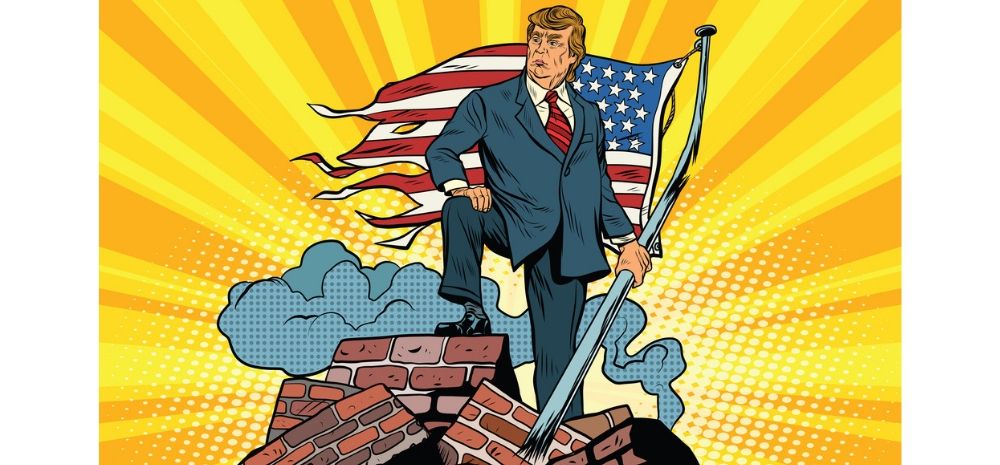H1B Visa Ban: 174 Indians Sue President Trump For Separating Families By Banning H1B

As an aftereffect of the recent presidential proclamation on H-1B, over 174 Indian nationals have filed a lawsuit saying it would prevent them from entering the United States or a visa would not be issued to them.
Contents
How Did This Happen?
On Wednesday, Judge Ketanji Brown Jackson at the US District Court in the District of Columbia issued summons to Secretary of State Mike Pompeo and acting Secretary of Homeland Security Chad F Wolf, along with Labor Secretary Eugene Scalia.
Prior to this, on Tuesday, the lawsuit was filed in the US District Court.
Further, the lawsuit claims that “The proclamation 10052’s H-1B/H-4 visa ban hurts the United States’ economy, separates families and defies the Congress. While the two former points render it unseemly, the latter point renders it unlawful,”.
On behalf of the 174 Indian nationals, the lawsuit was filed by lawyer Wasden Banias.
Moreover, the main purpose of this lawsuit is to seek an order declaring the presidential proclamation restriction on issuing new H-1B or H4 visas or admitting new H-1B or H-4 visa holders as unlawful.
Further, they want to urge the court to compel the Department of State to issue decisions on pending requests for H-1B and H-4 visas.
Why Would This Happen?
Earlier on June 22, Trump temporarily suspended issuing of H-1B work visas till the end of the year in his presidential proclamation.
The proclamation issued by Trump said, “In the administration of our nation’s immigration system, we must remain mindful of the impact of foreign workers on the United States labor market, particularly in the current extraordinary environment of high domestic unemployment and depressed demand for labor,”.
He further added that the overall unemployment rate in the United States nearly quadrupled between February and May of 2020, hence producing some of the most extreme unemployment ever recorded by the Bureau of Labor Statistics.
Moving ahead, the May rate of 13.3 percent further indicates the marked decline from April as millions of Americans remain out of work.
Before this, his existing executive order had banned issuance of new green cards of lawful permanent residency, now this proclamation extends till year-end.
Trump said that Green Card holders, once admitted pursuant to immigrant visas, are granted “open-market” employment authorization documents, which further allows them the eligibility to compete for most of the jobs in any sector of the economy.
What Does Lawsuit Claim?
This lawsuit claims that Congress specified the rules under which H-1B visa holders could work in the US and balanced the interests of US workers and employers.
According to the Forbes report, “The complaint seeks to protect H-1B professionals, including those who have passed the labor certification process and possess approved immigrant petitions. Such individuals are waiting for their priority date to obtain permanent residence, a wait that can take many years for Indian nationals,”.
What Do The Lawmakers Say?
Basically, several lawmakers insisted on Scalia to reverse the work visa ban on Tuesday.
The further said, “Throughout this administration, the president has continued to lament the alleged abuses of the immigration system while failing to address the systemic problems that have persisted and allowed businesses and employers to exploit and underpay immigrant workers, guest workers and American workers,”.
The letter further said, “This misguided attempt by the president to scapegoat immigrants for policy failures during the pandemic not only serves to hurt immigrants but dismisses the true problem of a broken work visa program that is in desperate need of reform,” said the letter.
The letter was signed by Congressman Joaquin Castro, Bobby Scott, Chair of the Congressional Hispanic Caucus, Chair of the Education and Labor Committee and Karen Bass, Chair of the Congressional Black Caucus.

Comments are closed, but trackbacks and pingbacks are open.